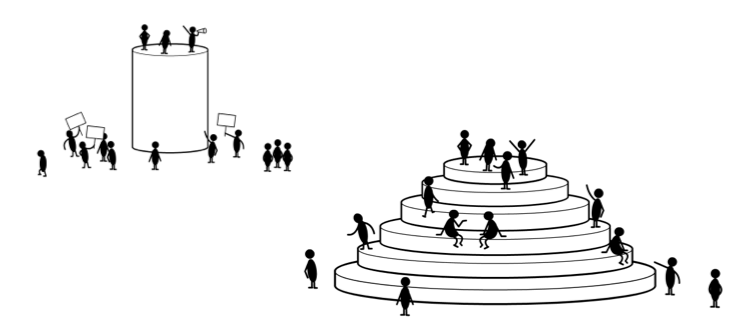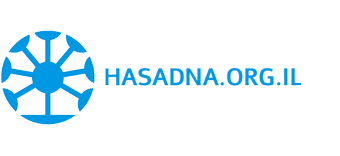
Participatory decision making in democratic communities
We aim to return democracy to it’s fundamental principle – public participation in the decision making process. We develop an online platform that enables democratic communities, big and small, to increase transparency and levels of participation and increase their social capital.
Why? – The need
Democracy is practiced not just in national politics but also in cooperatives, unions, NGO’s, parents association, professional associations, sport clubs, villages, towns, political parties and more. In many of these communities, democracy suffers from many ailments, the root cause of which is the alienation between the elected board and the public, where the public is excluded from the decision-making process and can only elect its governors and protest in between elections.
The hope that technology will increase participation has yet to materialize, either because existing solutions only serve specific needs within the current system (e.g. polling on one hand and petitioning on the other) and not a whole systematic solution, or because the change they offer demands too sharp immediate social transformation and confronts the way the community operates instead of enhancing it.
We aim to usher a change towards participatory democracy by a platform that enables stepwise transition of the democratic process from representative democracy towards participatory democracy, increasing community awareness of the democratic process and engagement in it and resulting in citizen empowerment.
What? – Project Description
The project enables democratic communities, lead by a board, to increase the public engagement of the community by systematically involving the public in the process of decision making, thus practically applying the idea by which the public is sovereign of the community.
The complete platform will accompany the process of decision making as it progresses:
1. Preliminary discussions and introduction of topics
2. Convergent discussion, suggestions and alternatives for solutions
3. Setting agendas and prioritization of topics for board meetings
4. Decision making by democratically voting
5. Publication of decisions, in a way which enables monitoring
The platform enables adjustments to the levels of exposure. The adjustments enable a gradual process according to the development and increase of trust between the board and the community:
The Basis – Digital Board Management
The platform is used only by the board to gather and prioritize topics for Board Meetings, voting, documentation of decisions and task management. The use of the platform results in better efficiency in the work of the board, and creates the basis of process and information for future involvement.
Phase A – Transparency
The board gradually opens the system to the community (in a view only mode). The transparency of the decisions assist in their execution, and the transparency of meetings agendas and open issues enables the members to approach board Members with suggestions and insights.
Phase B – Consultation
The platform enables the usage of quontitive feedback from community members in the decision making process – members can participate in non-binding prioritization and vote on straw-polls to share their preference with the board prior to the board meetings.
Phase C – Collaboration
The platform enables the Board to share certain procedures with the community – Community members could raise issues (initiatives), introduce proposals, impact the agenda, and vote on proposals (referendum).
Phase D – Empowerment
Incorporating elements of Direct Democracy and Liquid Democracy, the platform allows the community members to be an organic part of the decision making process. Through the use of delegation, public committees and juries tools, the community can act as a true sovereign.
Who? – The Team
The project is led by Boaz Chen and Prof. Ehud (Udi) Shapiro with the collaboration of Alon Peled, Assaf Shapira, Udi Oron, Sarit Ariel, Benny Daon, Avivit Arvatz, Shlomi Zigart and others. This Public Knowledge Workshop project was founded as “Open Party” By Prof. Shapiro.
Status
The project received initial funding from Yad Hanadiv (Thanks!) and the pilot includes one community of each type -a Village community, an NGO, a PTA, and a Co-Op.
